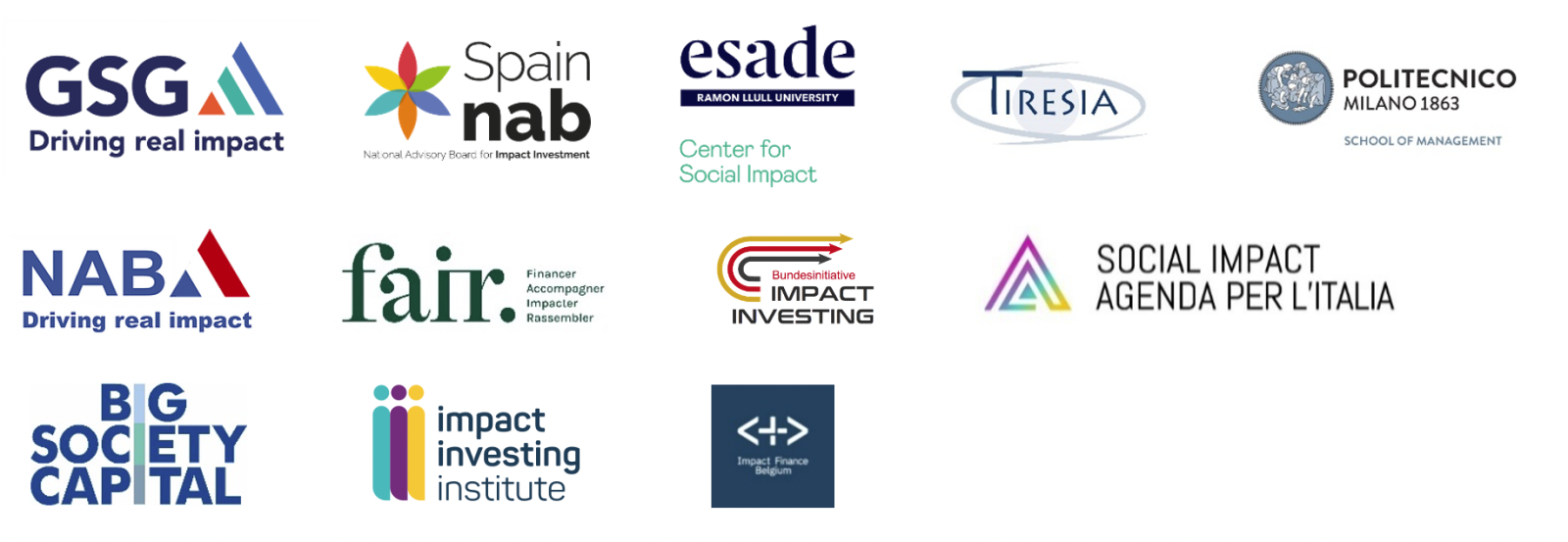Clarity Counts
How data helps Italy’s impact investing market balance lofty ambitions and remaining challenges

Italy’s National Advisory Board gained unprecedented market clarity due to the work of the Accelerating Impact study. But that also means challenges – such as launching more impact funds and stimulating the participation of the public sector – came into sharper focus. The work of inspiring market players, banks and policymakers is far from over.
*
Fresh new data are now available for those interested in the Italian impact investing ecosystem. This is a special and long-awaited moment for this ecosystem, providing key information to investors, entrepreneurs, policymakers and market builders. Thanks to the collaboration between the stakeholders who founded the Social Impact Agenda per l’Italia -- the Italian National Advisory Board (NAB) to the Global Steering Group for impact investment (GSG) -- Tiresia POLIMI and EVPA, a harmonised methodology was developed, and most representative organisations in the Italian ecosystem were surveyed, portraying a reliable and balanced view of the Italian market.
The new market report evidences the achievement of key milestones, which should be celebrated, but also highlights the challenges on the way for impact investing to become a well-established market. The total AUM in 2021 was €6.954 million, of which €3.287 million were newly allocated in 2021, across diverse asset classes. A growing number of impact funds is providing equity and debt to impact ventures (more than 7%), whereas commercial banks have been developing and marketing impact loans for non-profit organisations and social enterprises, making up a large share of the Italian impact market (65% of AUM). Most impact investors are patient, as 87% of respondents hold investments beyond 4 years, and provide non-financial support to impact ventures to strengthen their financial sustainability, strategic orientation and impact management skills. The findings also suggest that impact investors and ventures improved their awareness and competence about impact integrity and measurement. Since the G8 Taskforce on impact investment in 2013, rapid changes have occurred in the Italian market, thanks to the collaboration among the ecosystem stakeholders catalysed by the Italian NAB, but these achievements are not enough in light of the delayed progress against the SDG targets.
The market survey confirms the cultural and political challenges that have been indicated for a long time and still urgently need to be tackled by the NAB community and its partners. Despite an increased number of interesting experiences and innovative financial instruments, spanning across different asset classes, the market remains incipient. Pioneers like Sefea Impact, Social Fare Seed and Opes-Lcef developed hybrid financial instruments for supporting the development of impact ventures, and attracted new funding from institutional investors, such as banks, foundations and pension funds. However, only 12 PE/VC impact funds were established and have grown in size and importance (average size: €20 million). In this regard, Cassa Depositi e Prestiti is playing a major role in mobilising additional capital for impact investing.
In the banking sector, initiatives like the “Social Impact banking” of UniCredit or “Programma Rinascimento” of Intesa Sanpaolo are expanding the financial inclusion of hundreds of social enterprises by providing them with impact loans and capacity-building for impact management. Nonetheless, most banks have remained traditional in their operations and offers, as only 5 developed specific impact investing products.
Value chains are timidly developing in a few sectors, such as housing, health and welfare services, but still struggle to fully unfold, as they lack of an adequate industrial policy. In addition, these value chains are developing at a different pace, given the significant socioeconomic disparities at the regional level.
To boost the market, the Italian NAB community is adopting a coevolutionary strategy for the entire national ecosystem. The strengthening of the cooperation between the demand and supply of impact capital is crucial to improve investment readiness in impact ventures, develop financial instruments that respond more effectively to venture needs and enable business models to replicate and scale across Italy.
All the most mature markets, like the British and French ones, have developed thanks to a key role of public policy, by either regulating or participating in the market. The public sector can positively contribute to the national ecosystem development by encouraging investments in impact ventures through fiscal and non-fiscal incentives, facilitating impact data transparency, and improving regulation to encourage innovative financial instruments, in particular payment by results.
This is a historic moment for being bold: we are aiming at reaching 10% of assets invested into impact by 2030. As a national advisory board, Social Impact Agenda per l’Italia is committed to mobilising additional capital for impact, by promoting impact transparency and management as well as inspiring market players to accelerate their transition to an impact economy.
*
Join Filippo in the Talking Numbers panel at Impact Week on 23 November!
Partners

